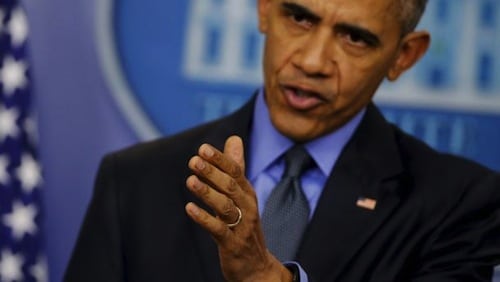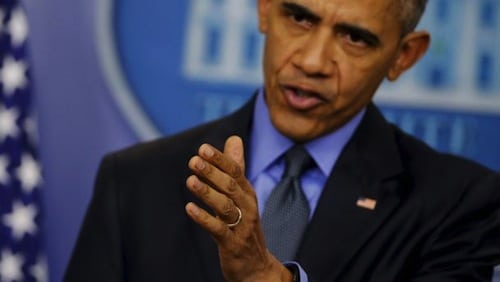
Just one day after “Implementation Day” of the Iran nuclear agreement, where international sanctions were removed with the certification that Iran had met all of its obligations under the agreement, the US has slipped back into its old habits. Citing Iran’s work on ballistic missile development, the US Treasury Department announced yesterday that the US was imposing a new round of sanctions on the country. Several firms that are helping Iran develop its missile capability are also falling under the Treasury hammer.
Announcing the new sanctions, President Obama said, “We will continue to enforce these sanctions vigorously. We are going to remain vigilant about it.”
The sanctions are being imposed because the ballistic missiles tested by Iran in October are capable of carrying nuclear weapons. But, as Moon of Alabama blog points out, the UN certification on Saturday means that Iran does not have nor will it pursue a nuclear weapon. So the point is completely moot.
The real issue is that the US does not want Iran to have any ballistic missile capability regardless of whether they are meant to carry nuclear weapons. This despite the fact that Iran’s neighbors Pakistan, Russia and Saudi Arabia all have such missiles and Israeli and US missiles can also reach Tehran.
So what is the point of these sanctions? It is to tell Iran it has no right to develop any sort of military deterrent despite being ringed by adversarial countries many of which have threatened Iran with destruction. It is not about reducing a nuclear threat, but about making Iran more vulnerable in a hostile region.
In that, it is clear that it is the US that is now in violation of the nuclear agreement. At least, as MoA writes in the above-linked article, in spirit.

